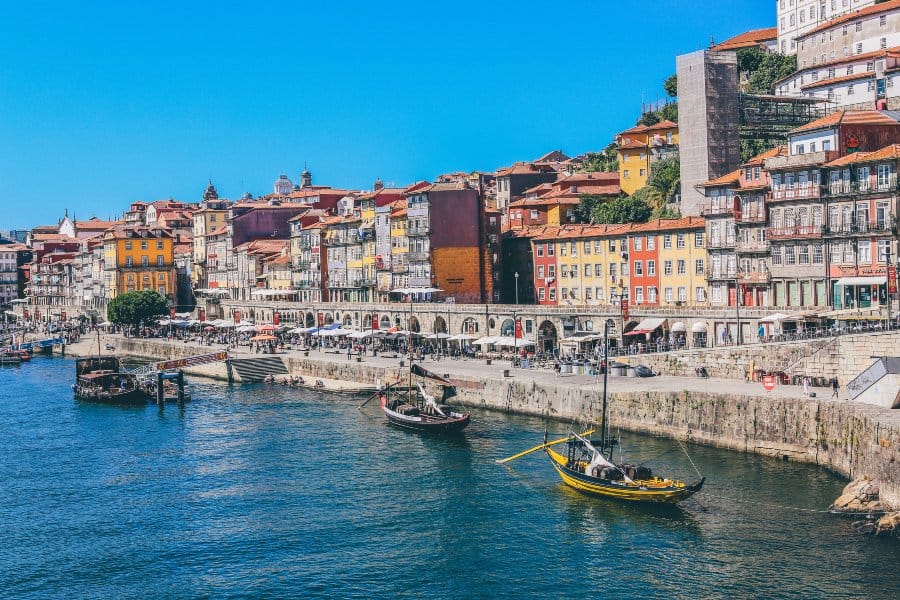
Are you planning a move to Portugal? Whether you’re relocating for work, family, or just going after a grand adventure abroad, moving can often be daunting. But with the right know-how and preparation, it doesn’t have to be so terrible. From paperwork requirements to finding housing to getting your finances in order – we’ve compiled seven tips that will help make sure your experience as an expat is as smooth sailing as possible! Keep on reading for more information about making an easy transition into life in the beautiful country of Portugal.
Legal And Visa Requirements For Moving To Portugal
Moving to a new country often involves a fair amount of legal procedures and Portugal is no different. The first step is understanding the visa requirements. Non-European Union residents wishing to stay in Portugal for an extended period need a Residence Visa (Visto para Residência).
It’s important to apply for this visa before you leave your home country through the Portuguese Embassy or Consulate. For a quicker solution investing in Portugal real estate can grant you a Golden Visa. If you want to start a business in Portugal and obtain a Golden Visa, you need to make an investment of at least EUR 500,000 and create at least five permanent jobs.
Understanding Portuguese Culture
Portuguese culture is rich and varied, deeply rooted in a history that includes Roman, Moorish, and Christian influences. The Portuguese are known for their warm hospitality, taking pride in their cuisine, music, and traditional customs.
The country’s gastronomy is diverse, with dishes primarily consisting of seafood, meat, and dairy products. The national dish is Bacalhau (salted cod), and no meal is complete without a glass of locally produced wine.
Fado, a traditional music genre known for its expressive and melancholic melodies, is a quintessential part of Portuguese culture. UNESCO has recognized Fado as the World’s Intangible Cultural Heritage.
Portuguese people also hold a deep respect for their traditions and festivities, the most famous being the June festivals or “Festas de Lisboa” in honor of Saint Anthony. These festivities are characterized by vibrant parades, music, dancing, and feasting on sardines.
Choose The Right Location In Portugal
Deciding where to live in Portugal is a significant decision that can influence your overall experience in the country. Portugal is a diverse country with each region offering its unique charm and lifestyle. The capital, Lisbon, is a bustling city with a rich history, vibrant nightlife, and an exciting food scene. It offers an array of historic buildings and modern facilities, making it an attractive location for expats.
If you prefer a slower pace, consider the northern city of Porto. Known for its port wine production, Porto combines ancient history with stunning landscapes and a laid-back lifestyle. For a coastal living experience, the Algarve region in the south is famous for its beautiful beaches, golf courses, and warm climate. For those looking for a more rural lifestyle, central Portugal might be the right choice. Regions like Alentejo and Beira Interior offer peaceful, countryside living with lower costs of living.
Learning The Portuguese Language
Mastering the local language is key to fully immersing yourself in any new culture, and Portugal is no exception. Portuguese is the country’s official language and while English is often spoken in tourist areas and by younger generations, learning Portuguese will broaden your horizons, deepen your understanding of the culture, and enhance your day-to-day interactions.
There are numerous ways to learn Portuguese. Self-learner resources like Duolingo, Rosetta Stone, or Pimsleur offer language courses that you can follow at your own pace. If you prefer a classroom environment, consider enrolling in language schools offering Portuguese courses. In major cities like Lisbon or Porto, you will find many language schools catering to different proficiency levels.
Navigating Healthcare And Education Systems
Understanding Portugal’s healthcare and education systems is essential for a smooth transition into your new life. Portugal has a high standard of healthcare, provided by both public and private sectors. The National Health Service (Serviço Nacional de Saúde, SNS) offers free or low-cost healthcare to residents, but waiting times can be long for non-urgent treatment.
Private healthcare is also available and is popular for its efficiency and high-quality service. However, it’s essential to have health insurance if you opt for private healthcare. Some expats choose international health insurance plans to cover medical costs.
Portugal also has a well-regarded education system with both public and private schools offering high-quality education. For expats, international schools are the most common choice, providing instruction in English or other languages. However, Portuguese language skills may be required for enrollment in public schools.
Financial Planning And Banking In Portugal
Financial planning is a critical aspect of relocating to any new country, and Portugal is no exception. It is advisable to have a clear understanding of Portugal’s tax system and potential obligations before moving. Depending on your country of origin, you may be eligible for the Non-Habitual Resident (NHR) regime, a tax program that provides a flat income tax rate for qualifying foreign residents. Consulting with a tax advisor can help clarify your situation.
Setting up a Portuguese bank account is an essential step for managing your finances locally. Portugal has a robust banking system with several national and international banks. Most banks offer online banking services, making it convenient to manage your finances from anywhere. Banks in Portugal usually require your passport, proof of address, and your Portuguese tax number (NIF) to open an account.
Embracing The Expat Community And Local Life
Getting involved in the local community and connecting with fellow expats can significantly enhance your experience in Portugal. The expat community in Portugal is vibrant and welcoming, providing a sense of camaraderie and a valuable source of support and information. There are numerous expat groups, clubs, and organizations where you can meet people, share experiences, and get advice about living in Portugal. Websites like Internations, Meetup, or Facebook groups can be a good starting point to find local expat communities.
However, while connecting with fellow expats can be comforting, it’s equally important to embrace the local culture and lifestyle to truly get the most out of your life in Portugal. Participating in local festivals, trying out traditional Portuguese activities, or simply engaging in friendly conversation with your neighbors can help you understand the Portuguese way of life and make you feel more at home.
In conclusion, moving to Portugal can be an exciting and rewarding experience with the right preparation. From legal requirements to cultural practices, this guide has covered some essential aspects that will help you navigate your move smoothly. So pack your bags, brush up on your Portuguese, and get ready to embark on a new adventure in one of Europe’s most charming countries!








